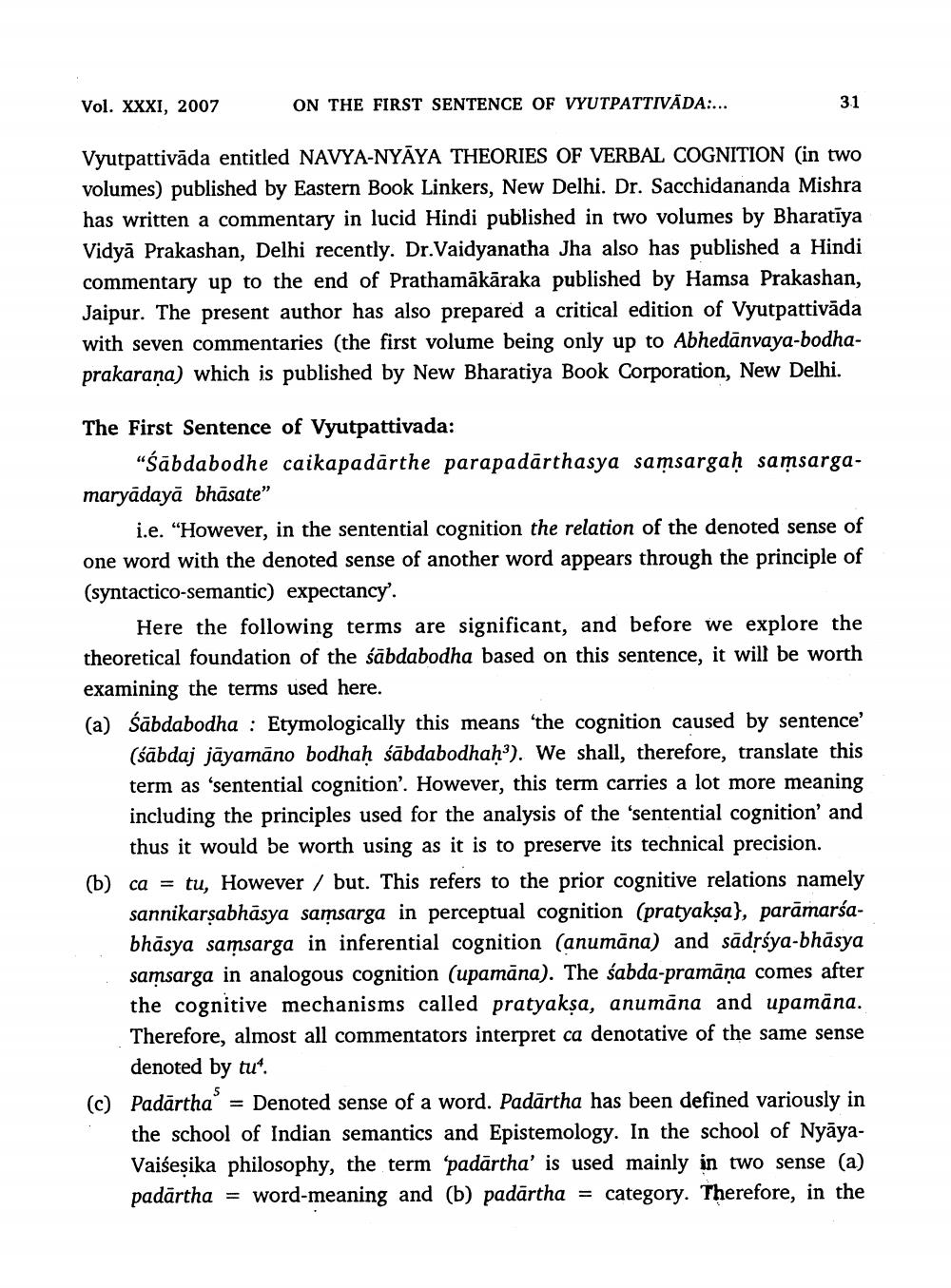________________
Vol. XXXI, 2007
ON THE FIRST SENTENCE OF VYUTPATTIVADA:...
31
Vyutpattivāda entitled NAVYA-NYAYA THEORIES OF VERBAL COGNITION (in two volumes) published by Eastern Book Linkers, New Delhi. Dr. Sacchidananda Mishra has written a commentary in lucid Hindi published in two volumes by Bharatiya Vidyā Prakashan, Delhi recently. Dr.Vaidyanatha Jha also has published a Hindi commentary up to the end of Prathamākāraka published by Hamsa Prakashan, Jaipur. The present author has also prepared a critical edition of Vyutpattivāda with seven commentaries (the first volume being only up to Abhedānvaya-bodhaprakarana) which is published by New Bharatiya Book Corporation, New Delhi.
The First Sentence of Vyutpattivada:
"Śābdabodhe caikapadārthe parapadārthasya samsargaḥ samsargamaryādayā bhāsate"
i.e. “However, in the sentential cognition the relation of the denoted sense of one word with the denoted sense of another word appears through the principle of (syntactico-semantic) expectancy'.
Here the following terms are significant, and before we explore the theoretical foundation of the śäbdabodha based on this sentence, it will be worth examining the terms used here. (a) Śābdabodha : Etymologically this means 'the cognition caused by sentence'
(śābdaj jāyamāno bodhaḥ śābdabodhaḥ?). We shall, therefore, translate this term as 'sentential cognition'. However, this term carries a lot more meaning including the principles used for the analysis of the 'sentential cognition and
thus it would be worth using as it is to preserve its technical precision. (b) ca = tu, However / but. This refers to the prior cognitive relations namely
sannikarşabhāsya samsarga in perceptual cognition (pratyakşa}, parāmarśabhāsya samsarga in inferential cognition (anumāna) and sādrśya-bhāsya samsarga in analogous cognition (upamāna). The sabda-pramāna comes after the cognitive mechanisms called pratyakșa, anumāna and upamāna. Therefore, almost all commentators interpret ca denotative of the same sense denoted by tu. Padārtha' = Denoted sense of a word. Padārtha has been defined variously in the school of Indian semantics and Epistemology. In the school of NyāyaVaiseșika philosophy, the term “padārtha' is used mainly in two sense (a) padārtha = word-meaning and (b) padārtha = category. Therefore, in the
(c)




